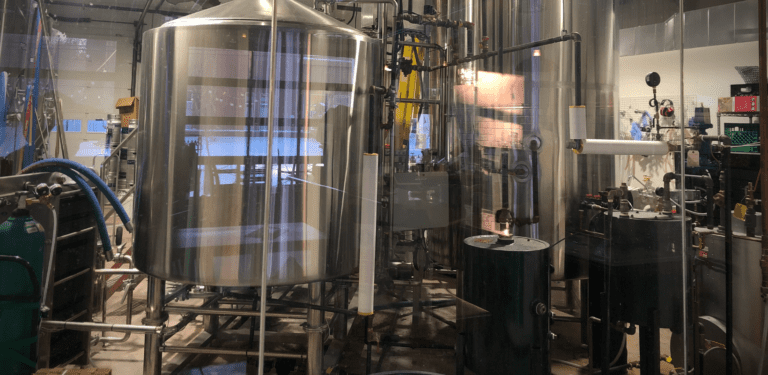
Making beer isn’t just a process of craftsmanship and creativity. It’s also a process of transformation — and that takes energy.
From day one at Cardinal Brewing, we wanted to make every effort to run a sustainable business and make responsible choices for our community and our future. That’s why we made the unusual choice to move away from fossil fuels and set ourselves up as an all-electric brewery.
Quebec is Canada’s leading producer of hydroelectricity. Yet even here, most breweries rely on fossil fuels to power their brewing systems.
When you look through the window into our brewing area, the eye is drawn towards the massive kettles and brite tanks. But it’s our 150kW electric boiler that is the heart of our machinery.
Steam boilers, including those used in brewing, have been around for a long time. Water is heated into steam and moved through pipes into chambers in the brewing vessels. The heat from the steam heats up the “hot liquor” or brewing water and it brings the hot wort to boil, ready to receive all of those special hop additions brewers plan out as part of their recipes.
Most breweries generate the steam with a propane or natural gas-fired boiler. Yet these systems are actually only 73-83% efficient with the rest of the energy going up the exhaust pipe contributing to a higher carbon footprint. Compare this to an electric system at almost 100% efficiency running on clean Hydro. So why don’t more breweries embrace electricity?
Well, building an all-electric brewery might have been a no-brainer goal, but it was not without its headaches. The boiler itself is a more expensive piece of kit compared to a gas-fired counterpart. We also had to invest in upgrading to a 600-volt service to power our new boiler.
Over the long term, we believe the additional investment and logistical headaches will be worth it. From the beginning, we were determined to get the big decisions right, and that means looking beyond the up-front cost.
Making sustainable choices isn’t always easier, but we believe the payoff is greater. Our all-electric system does what we need it to do, and reduces our carbon footprint to boot.